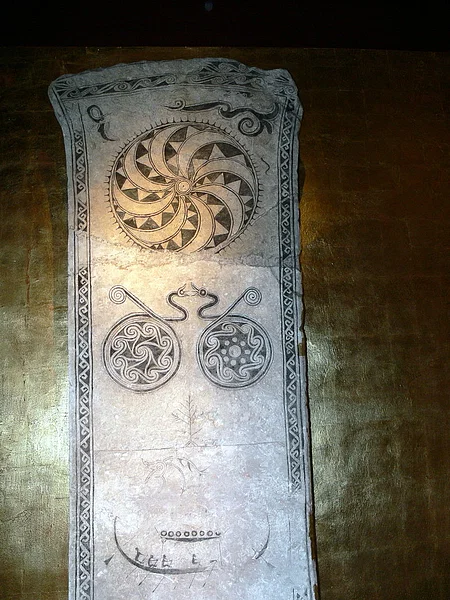
In Norse mythology, the Sun and the Moon appear as personified siblings pulling the heavenly bodies and chased by wolves, or as plain objects. Written sources, such as the Poetic Edda and the Prose Edda, have surprisingly little to say about them, but clues from before the Viking Age put together with the written works speak of their greater role in ancient Scandinavia.
The Sun & Moon in Norse Writings
Unlike in the Roman tradition and much like in modern German, the sun (sól in Old Norse) is a feminine noun, and the moon (máni) is masculine. In the Völuspá, a poem where a prophetess reveals information about the beginning and end of the world, we can read about their kinship:
The sun, sister of the moon,
Shone from the south,
With her hand
Over the rim of heaven;
The sun did not know yet
Where her home should be,
The moon did not know yet
What power he had
(stanza 5)